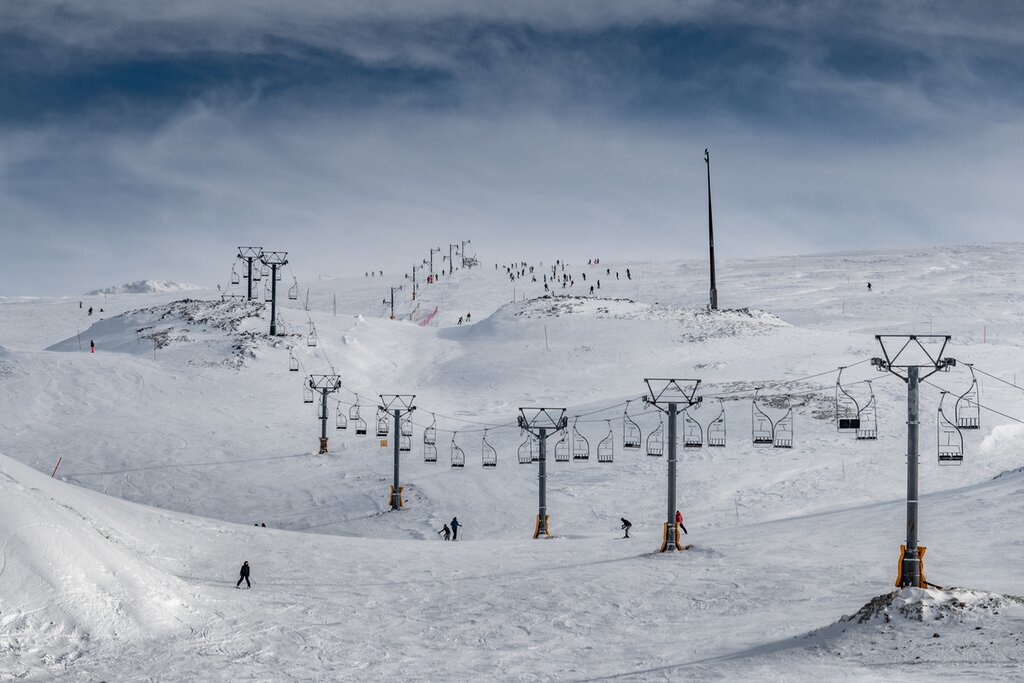Weather
Winters are fairly mild, except in the mountains, when snowfall is common. Athens' temperatures average 55°F (13°C), with nightly lows that rarely approach freezing. The islands are usually a degree or two warmer. Still, although this is the coldest month, it might even seem balmy if you're visiting from a much colder country. More days than not, the sky is overcast. And rain falls about one day in three. Heading to the islands? Sure, this is the Mediterranean, but make no mistake—the seas can be rough, and it can be damp, windy, and cold. Pack cold-weather clothing, plus windproof raingear.
Crowds & Costs
Greece seems so much more personal in winter, when most travelers are cozying up to the fire back home. Airfares and hotel rates are at their lowest, although you'll have fewer options: Many charter airlines don't operate in winter, regular schedules are cut back, and many hotels, restaurants, and bars close. But you'll have prompt service at those that remain open.
Where to Go
January is an ideal time to explore Athens, when the Acropolis and other key sites are free from the summer crowds. Many visitors from northern climes still head to the Greek Islands, however, in hopes of some winter sun, with clear skies about two in three days. Party animals take note: in midwinter, many clubs and bars shutter for the winter. Tranquility reigns without the loud music! It's best to stick to the main islands, such as Crete and Santorini, where you'll have a wider choice of bars and restaurants still open, and which enchant at any time of year.
Chat with a local specialist who can help organize your trip.
What to Do
This is a great time to focus on museums and cultural visits. Unless your idea of a good time is a Polar bear plunge, forget bathing in the Mediterranean. By January, the sea will make you say _brrr!_ Parnassus may not quite be Aspen or Davos, but ski buffs will enjoy a day or two at Parnassus Ski Resort, where the bars and clubs at Arachova are at their most active. This is also a great time for photography, as the colors are softer in the absence of glaring summer sunlight. And it's a perfect time to focus on getting to know the Greeks themselves.
Events in January
Feast of Saint Basil's / New Year's Day, Nationwide. Greece's equivalent of Christmas Day, the Feast of St. Basil (Ayios Vassilios), is a gift-giving day and a time for feasting, card games, and other customs intended to bring good luck for the coming year. Athens and many other places have midnight fireworks.
Epiphany, Nationwide (January 6). A major national and religious holiday (in the Greek Orthodox calendar), Theofania (Epiphany) celebrations take place throughout Greece each year. The local Orthodox priest leads a procession through town, visiting each house to offer a blessing, and typically ends at a body of water, into which the priest tosses a cross. Swimmers dive in, hoping to retrieve it for good luck. Piraeus, Athens' port, has the biggest such "Blessing of the Waters" celebration.
Patras Carnival, Patras. Supposedly Greece's largest festival, Patras explodes into colorful life for several weeks with parade floats, boules ("cross-dresser" masquerades), pantomimes, and no end of parties.
Traveling to Greece in January? Check out these great itineraries
Highlights of Athens - 5 Days. Guides you to the best of the capital city, from the Acropolis to food markets.
Authentic Athens & Historical Greece - 8 Days. Eight days exploring ancient and modern Athens, plus Delphi and Mycenae.
Cultural Cyclades - 12 Days. Perfect for winter, this 12-day itinerary takes in four islands, offering a blend of classical history and local culture.
More Helpful Information
Greece in December
Greece in February
Best Time of Year to Visit Greece
How Many Days to Spend in Greece
